
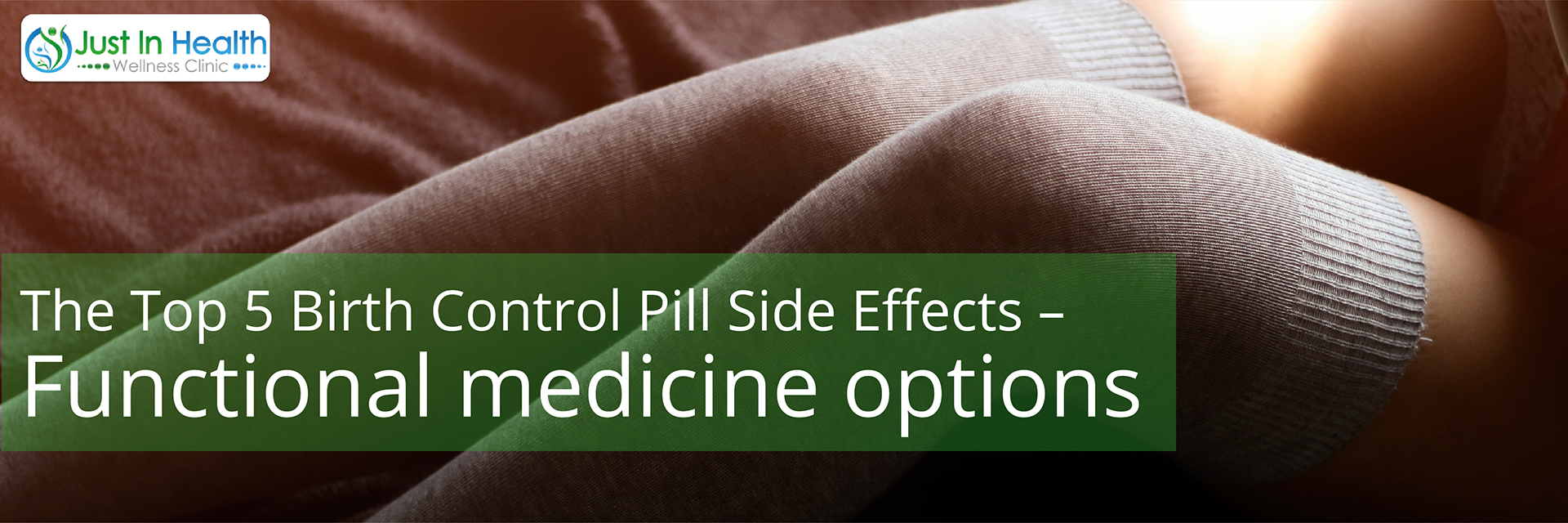 By Dr. Justin Marchegiani
By Dr. Justin Marchegiani
Birth control pills are often prescribed for reasons outside of just avoiding pregnancy. Many times birth control pills are prescribed for acne, migraines, excessive menstruation and PMS symptoms.
The problem with this type of approach is it doesn’t fix the root cause of why those symptoms are there in the first place. At some point, these old symptoms will reveal themselves again and maybe worse than they were originally.
Today we’re going to dig into how birth control works, potential side effects, and natural contraception options.
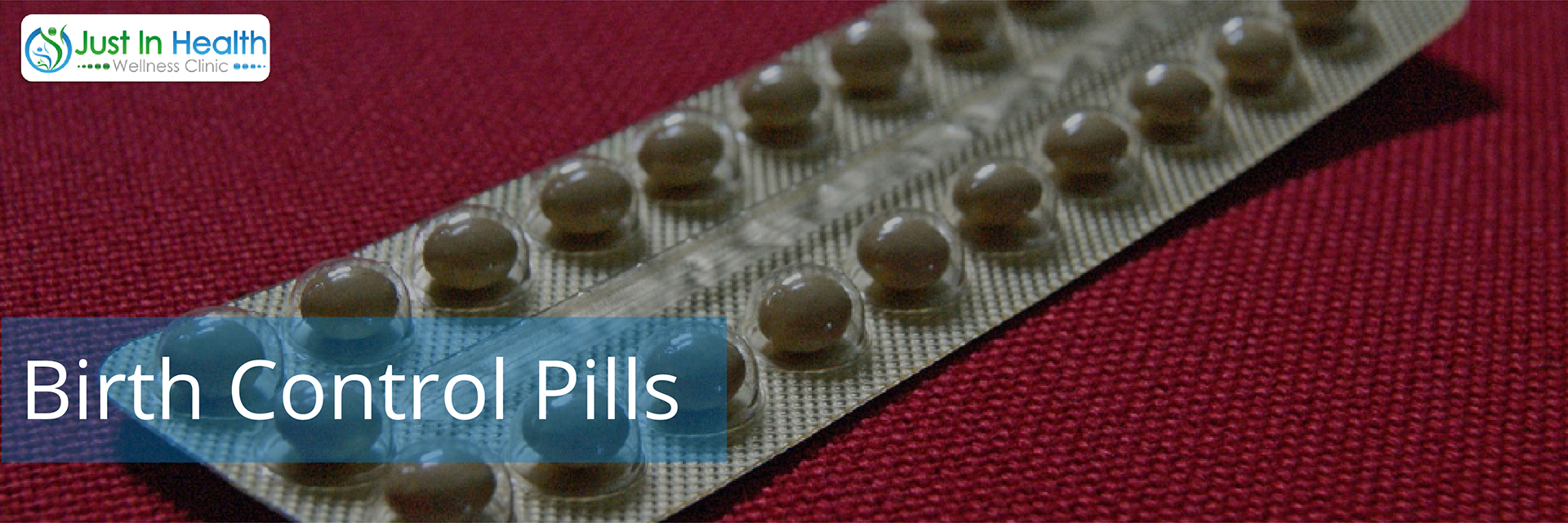
The conventional route of preventing pregnancy is either through chemicals or pharmaceuticals: A.K.A. birth control. The most prescribed medications out there are birth control pills, which pump your body with estrogen and progesterone.
There are couple of different kinds of birth control, including: shots, subdermal pellets, pills, NuvaRing, and IUDs like Marina (synthetic progesterone).
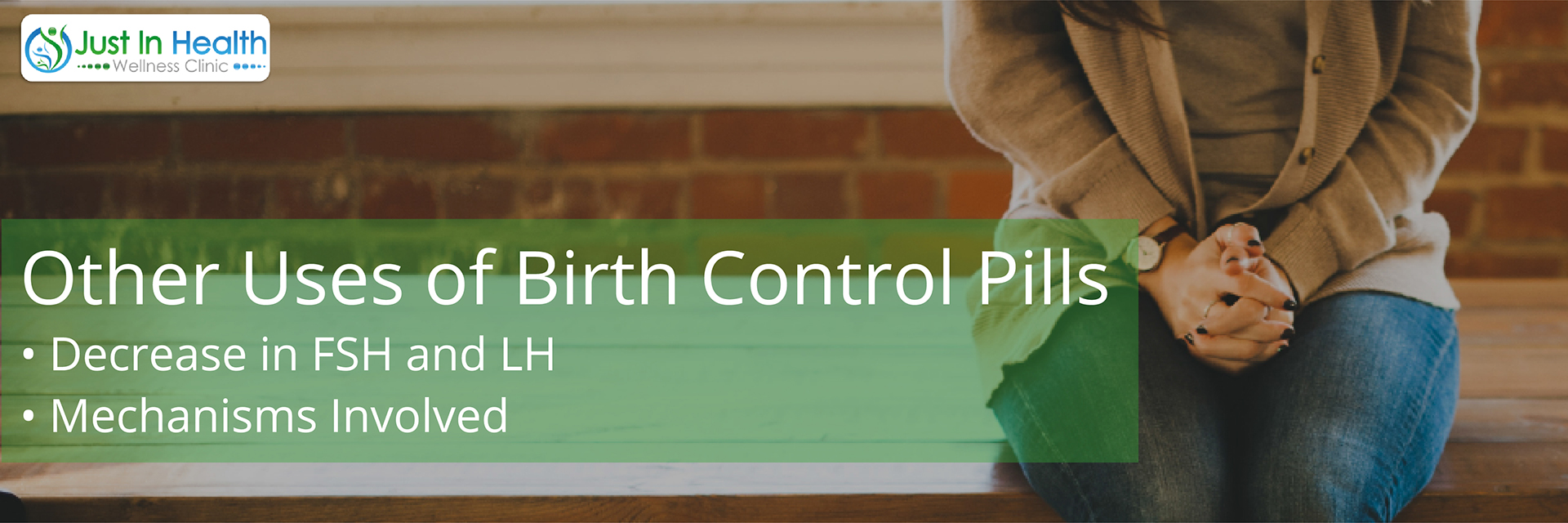
Birth control pills are also prescribed for other hormonal issues (acne, mood issues, migraine headaches, heavy menstruation…) In other words, if you suffer from bad PMS, the conventional route is to give you birth control to artificially stop or control your periods. However, these issues are generally driven by imbalances in the body- so birth control is covering up the underlying issues, rather than fixing them.
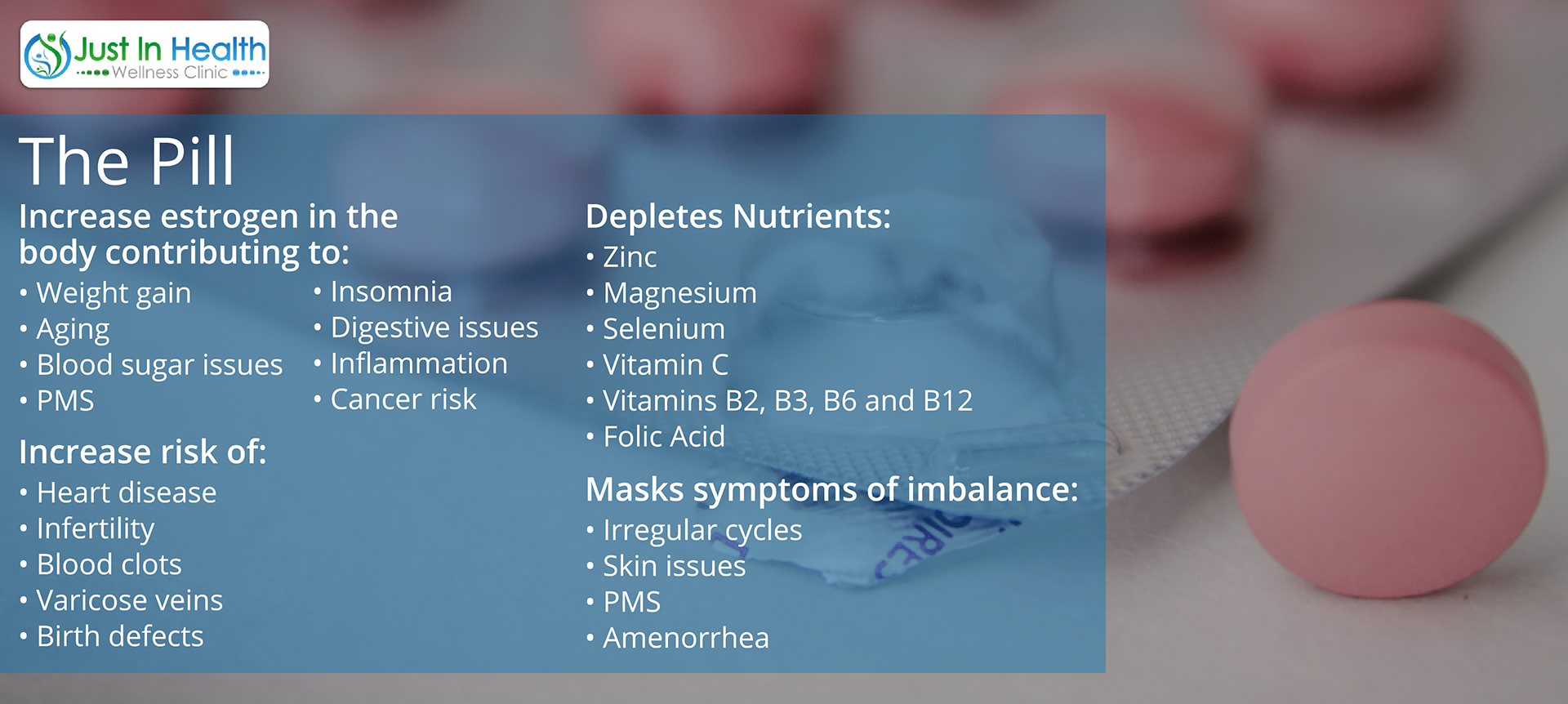
Birth control affects organs like the cervix, vagina and uterus. Here are a few things that happen to you, physically, when you take birth control:
These are your pituitary hormones that talk to the ovaries to make progesterone and estrogen. When you’re taking a birth control pill, essentially you’re telling your brain that you’re pregnant. That’s why these hormones start to drop. When these hormones drop, they stopped talking to the ovaries to make estrogen and progesterone. So typically, FSH is going to then talk to the egg, and stop that egg from growing if it’s low. It’s going to stimulate egg growth if it’s high.
So if FSH is low, that egg is not going to grow. When FSH and LH both low, what tends to happen is you get a thickening of the cervical cap so it’s harder for sperm to make their way into the uterine lining.
In a natural cycle, estrogen rises in the first half of the cycle and that starts to thicken the uterine lining. But when you’re taking a birth control pill with synthetic progesterone, the Drospirenone, that actually thins out the uterine lining. It thins it out, making it harder for an egg (if it is released) to actually stick into the uterine lining.
Mechanisms Involved
Birth control pills works a couple different ways:
The first half of the cycle is predominated by estrogen. So estrogen is up like this in the first half of the cycle; then we have progesterone that predominates the second half of the cycle. And you can see what happens is progesterone rises and falls and estrogen rises and falls right at the end of the cycle which triggers menses. And then we have the part here in the middle of the cycle where ovulation happens and that’s where pregnancy can occur.
With the birth control pill, these hormones aren’t going to fluctuate because the LH and the FSH is dropped. Because the LH and the FSH is dropped, we’re not going to have that nice, natural rhythm of hormone because essentially our brains think we’re pregnant.
With birth control, instead of there being drops in progesterone level, we are now getting a high amount of progesterone and estrogen above where we’re supposed to be at. And so, we now have a flat line instead of a natural rhythm. Then typically around Day 21 and 22, we take those five to seven days of reminder pills which then allows the hormones to drop like so and that allows menstruation to happen. With a progesterone-only pill, that may not happen; but on an estrogen or estrogen-progesterone combo, that’s what’s going to happen.
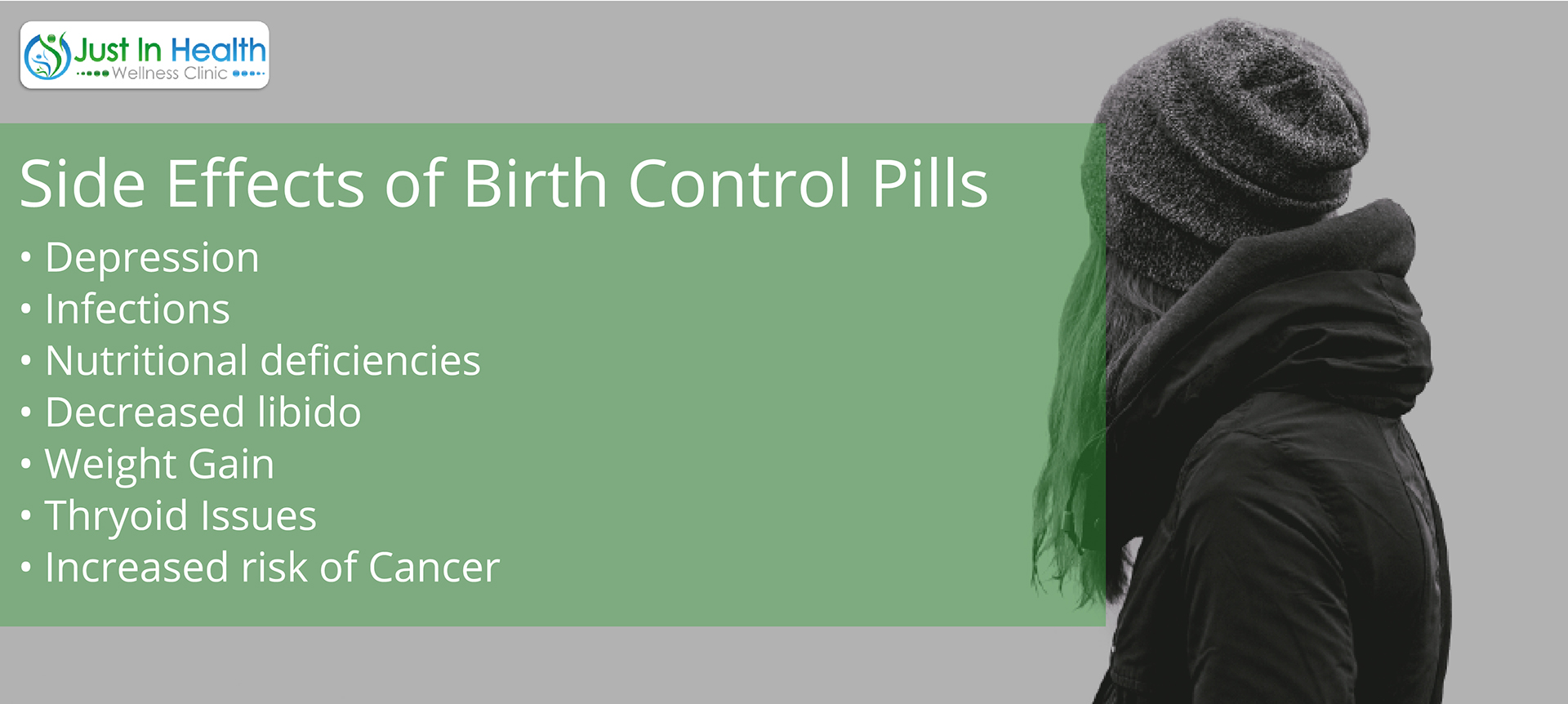
There are many under-acknowledged side effects from conventional birth control methods. These include depression, weight gain, acne, nutritional deficiencies, thyroid issues, and even cancer!
The birth control pill may affect your mood; depression is one of the most prominent side effects because you’re affecting hormones. Hormones are intimately connected to our moods. So if you’re taking hormones and bringing them above a physiological or bringing them to a super physiological level, it may cause depression and anxiety.
Birth control pills affect the pH in the vaginal tract, making it a little more alkaline. When the pH is more alkaline (above a 7 pH), it becomes more inhabitable for yeast and bacteria to grow. So when you’re stressed and when you’re on birth control pills, you have an increased chance of a UTI or a fungal infection.
Birth control pills are notorious for creating B vitamin deficiencies: folate, B9, B12, B1, thiamine, riboflavin, niacin. All these are important for your overall health, and for your thyroid as well. You have to be mindful that if you’re going to use the pill, you have to make sure you’re taking high-quality multivitamin because of the deficiencies it leads to.
Because your birth control pill is increasing sex hormone-binding globulin, testosterone binds to protein. Called “sex hormone-binding globulin,” when testosterone starts binding to protein it makes it harder for that testosterone to bind into the receptor site. It gets too large and can’t fit where it needs to go.
So that protein there renders your testosterone or your sex hormones to be a little bit lower functionally. So guess what happens? Libido goes downhill and also because the testosterone drops a little bit, guess what happens to women’s skin on the birth control pill? It tends to get a little better.
This is kind of a controversial one, but if you look at the side effects on the bottle or on the drug, it’s going to say weight gain. Birth control generally increases estrogen; synthetic estrogen increases insulin resistance. As we know, insulin resistance us a huge cause of weight gain (and also leads to trouble shedding excess fat).
Sex hormone-binding globulin and thyroglobulin increase when you take birth control. Thyroglobulin is a thyroid hormone, which, like testosterone, also has trouble binding. Thyroid issues are linked to weight gain, fatigue, hair loss, and more.
Birth control pills may increase cervical cancer 300%, and increase breast cancer by 200%!
If you’re trying to prevent pregnancy, check out my natural birth control pill video.
If you’re taking birth control for PMS symptoms, address the root cause of those issues. Don’t turn to a pill to mask the symptoms- it will just cause you even more trouble down the line.
If you're trying to get your hormones balanced, or trying to get yourself back on track hormonally from some of the side effects of being on birth control pill, or trying to avoid it, click on screen, subscribe. You can always schedule a consult with myself.